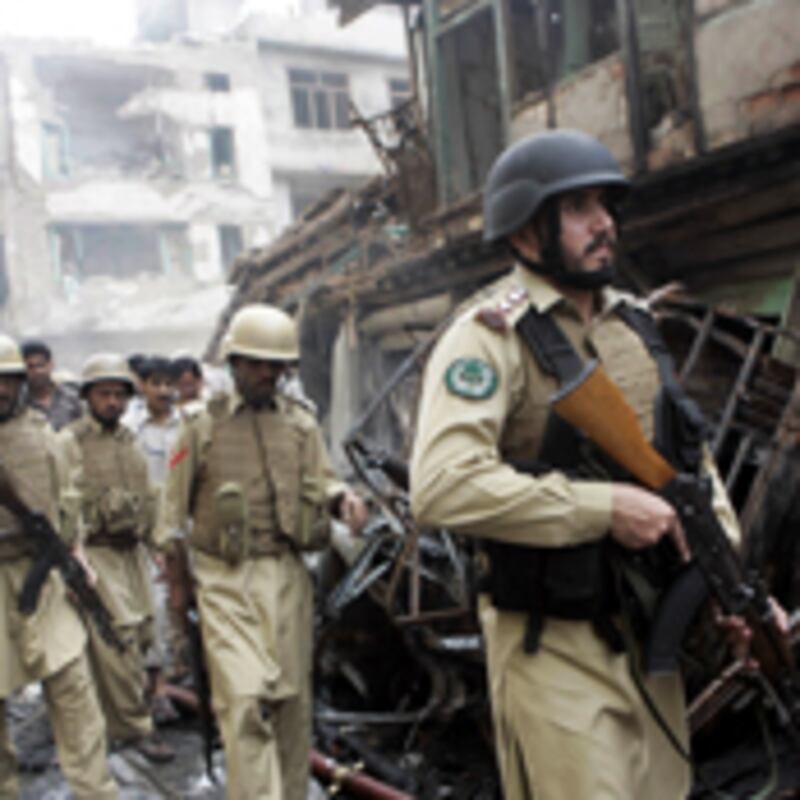
No matter how many stupid mistakes America commits in its battle against Al Qaeda and the Taliban, we have one big thing going for us: the guys we are fighting against. Comparing these guys to the communists and fascists of old is like comparing your office softball team to the New York Yankees. In the 1930s, when the democratic capitalist world was in depression, vast numbers of people across the globe—including some of the most famous intellectuals on earth—genuinely believed that fascist and communist regimes could economically outcompete democratic capitalist ones. Barely anyone has ever believed that about Al Qaeda or the Taliban. The only reason Osama Bin Laden and company have ever enjoyed any support in the Muslim world is because they took on the United States. For many Muslims, Bin Laden was like the drunk guy in the bar who punches the boss that you hate. You might cheer the guy, but you don’t want him running the company. And that conviction only grows when he starts aiming his punches at you.
Public support for Bin Laden, and for suicide bombing, has fallen off a cliff. The Taliban and Al Qaeda are alienating both the poor and the merchant classes, just as they did in Algeria and Egypt.
In the United States, there’s a tendency to measure Al Qaeda’s strength by how many people they kill. But for jihadist groups, mass murder is more often a sign of political weakness. In the 1990s, for instance, jihadists slaughtered vast numbers of people in Algeria and Egypt, leading many in the West to assume that their ascent to power was just a matter of time. But in 2001, when the French scholar Gilles Kepel examined why the Algerian and Egyptian jihadists had failed, he found that it was precisely their resort to carnage that produced their political collapse. To take power, Kepel argued, the jihadists had to win two key groups—the urban poor and the pious merchants—groups that proved crucial to the Islamic revolution in Iran in 1979. But their lack of a compelling governing vision left them unable to assemble this broad coalition. And when they turned, in frustration, to mass violence, those constituencies rallied to the government’s side.
Already, we have seen a version of this scenario play out in Iraq. For a time, Al Qaeda tried to create a coalition of sorts with Baathists, nationalists and tribalists in Sunni Iraq. But even conservative Sunnis couldn’t stand living in Al Qaeda-run fiefdoms where people were routinely beaten and killed for minor infractions of Islamic law. The more killing the jihadists did, the more they dug their political grave.
• Tina Brown: Hillary Finally Doffs Her Burqa• Leslie H. Gelb: Obama Stalled Out All Over the World• Lee Siegel: Generals Can’t Be TrustedNow something similar may be happening in Pakistan. Over the couple of years (and especially the last couple of months), Al Qaeda and the Taliban have launched increasingly spectacular attacks, not only against Western targets, but against Pakistani ones. To read the newspapers, you would think this rising violence means that the jihadists are getting closer to seizing political power. But the truth may be closer to the reverse. For a long time, many Pakistanis saw Al Qaeda and their local jihadist allies as the equivalent of that guy in the bar: a little crazy, but useful for bloodying Pakistan’s enemies: India and the United States. In the last two years, however opinion has swung dramatically. A Pew Research Poll taken this August found the same thing: Between 2008 and 2009, Al Qaeda’s approval ratings in Pakistan fell 27 points and the Taliban’s fell 37 points. Public support for Bin Laden, and for suicide bombing, has fallen off a cliff. And interestingly, this shift has occurred among Pakistanis of all income, educational and ethnic groups. In other words, the Taliban and Al Qaeda are alienating both the poor and the merchant classes, just as they did in Algeria and Egypt. For the Obama administration, this data has two contradictory implications. First, it suggests that the situation in “AfPak” isn’t as hopeless as the skeptics claim. If the Pakistani public is finally pushing their leaders to go after the jihadists, the U.S. may have a better ally against the Taliban than we have had since 2001—in which case, a troop surge might actually produce results. Conversely, however, if Pakistanis are turning against Al Qaeda and the Taliban for their own reasons, then America might be able to scale back its effort in Afghanistan without worrying as much that jihadists will get their hands on the nukes next door.
Probably, there’s some merit to both of these readings. And that suggests an irony. Doves generally say we must leave Afghanistan because the fight is unwinnable. Hawks say we must stay because the stakes are so high. The public shift in Pakistan suggests that they’re both exaggerating. The fight is not unwinnable, but for American security (as opposed to, say, Afghan women) the dangers of drawing down may not be all that great. The Obama administration is rightly agonizing about American policy in the region, but ultimately, getting our struggle for hearts and minds right may matter less than the fact our enemies are getting theirs so wrong.
Peter Beinart, senior political writer for The Daily Beast, is a professor of journalism and political science at City University of New York and a senior fellow at the New America Foundation.






